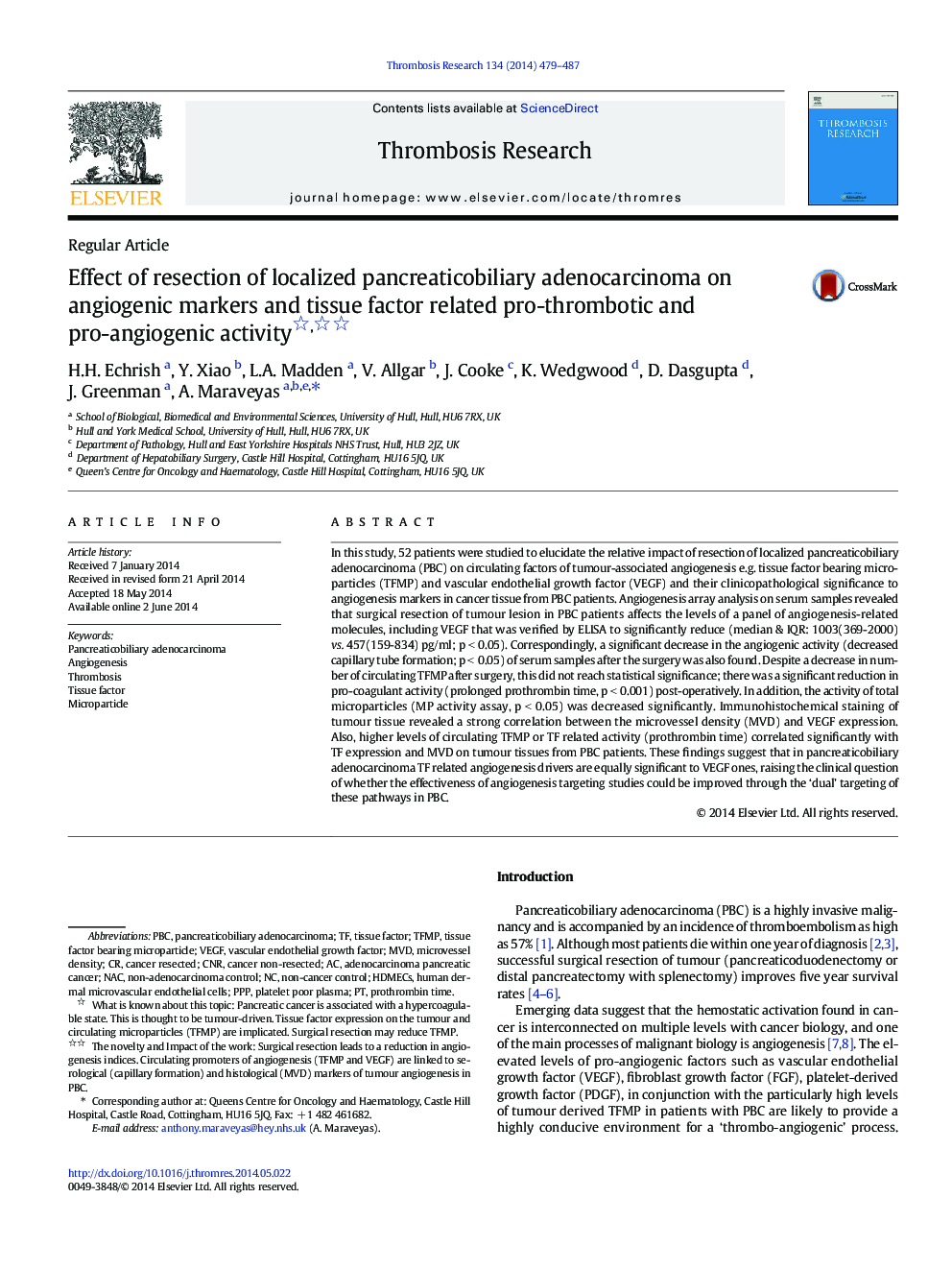| Article ID | Journal | Published Year | Pages | File Type |
|---|---|---|---|---|
| 6002374 | Thrombosis Research | 2014 | 9 Pages |
In this study, 52 patients were studied to elucidate the relative impact of resection of localized pancreaticobiliary adenocarcinoma (PBC) on circulating factors of tumour-associated angiogenesis e.g. tissue factor bearing microparticles (TFMP) and vascular endothelial growth factor (VEGF) and their clinicopathological significance to angiogenesis markers in cancer tissue from PBC patients. Angiogenesis array analysis on serum samples revealed that surgical resection of tumour lesion in PBC patients affects the levels of a panel of angiogenesis-related molecules, including VEGF that was verified by ELISA to significantly reduce (median & IQR: 1003(369-2000) vs. 457(159-834) pg/ml; p < 0.05). Correspondingly, a significant decrease in the angiogenic activity (decreased capillary tube formation; p < 0.05) of serum samples after the surgery was also found. Despite a decrease in number of circulating TFMP after surgery, this did not reach statistical significance; there was a significant reduction in pro-coagulant activity (prolonged prothrombin time, p < 0.001) post-operatively. In addition, the activity of total microparticles (MP activity assay, p < 0.05) was decreased significantly. Immunohistochemical staining of tumour tissue revealed a strong correlation between the microvessel density (MVD) and VEGF expression. Also, higher levels of circulating TFMP or TF related activity (prothrombin time) correlated significantly with TF expression and MVD on tumour tissues from PBC patients. These findings suggest that in pancreaticobiliary adenocarcinoma TF related angiogenesis drivers are equally significant to VEGF ones, raising the clinical question of whether the effectiveness of angiogenesis targeting studies could be improved through the 'dual' targeting of these pathways in PBC.
